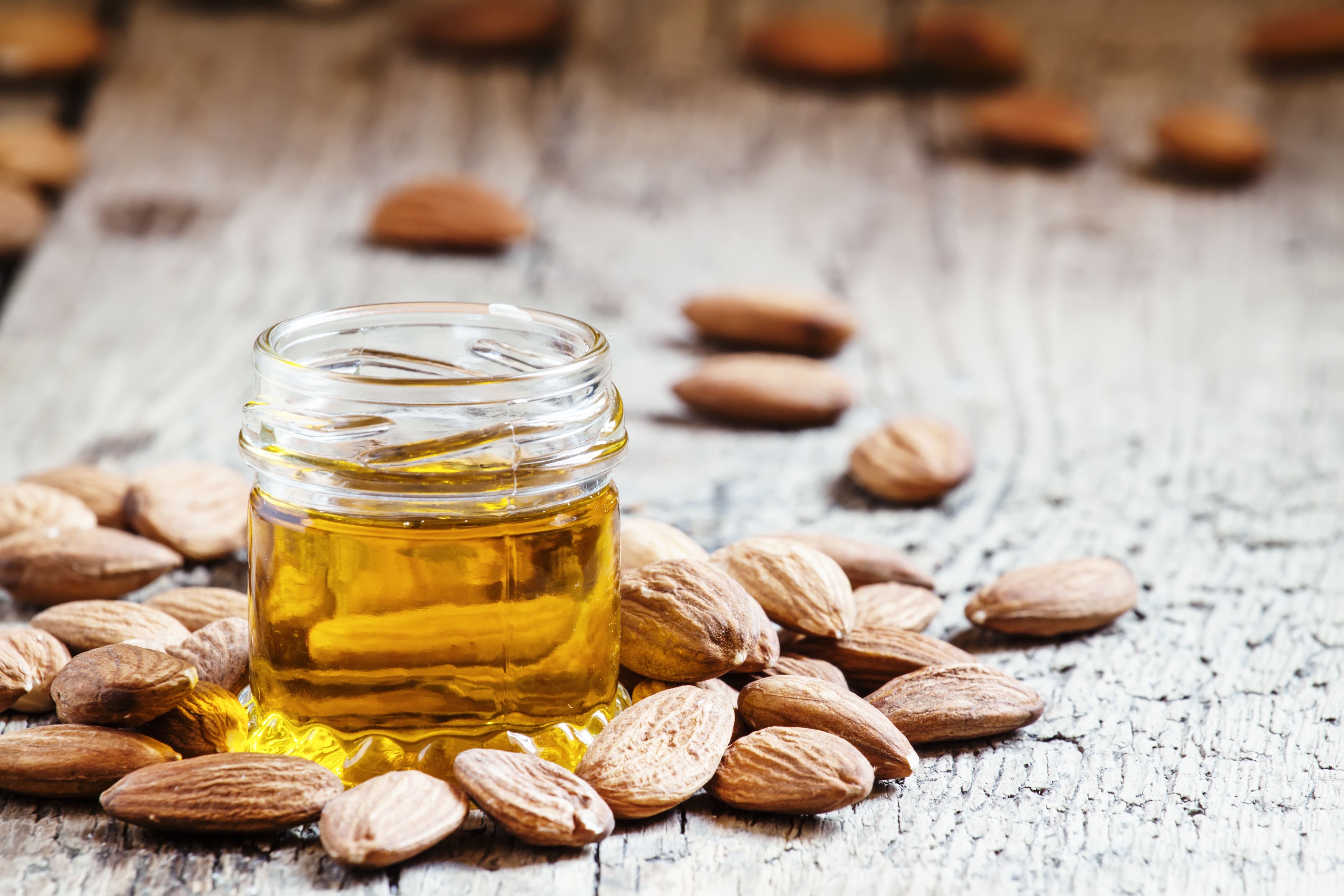Many holiday feasts feature turkey as the main course, especially when it’s fried to a golden, crispy perfection. However, there are many equally effective substitutes if you run out of peanut oil or want to try something different.
Canola, sunflower, and corn oils are excellent substitutes for frying turkey because they have a high smoke point and a neutral taste that helps you get the ideal crunch. There may be additional benefits to switching to these alternatives.
Many are readily accessible, more reasonably priced, and, depending on your preference, could even be healthier.
These oils guarantee that you will still achieve that juicy, delectable finish without compromising quality or taste, whether you’re cooking for a large gathering or trying your first fried turkey.
Best Peanut Oil Substitute For Frying Turkey
1. Safflower Oil

When it comes to frying a turkey, safflower oil is revolutionary, particularly if you’re trying to find an alternative to peanut oil.
Safflower oil can withstand the extreme heat required for deep-frying without degrading or changing the flavor of your food because to its high smoke point of around 450°F.
Plus, it has a neutral flavor, so your turkey—rather than the oil—will be the main attraction. Rich in heart-healthy unsaturated fats, safflower oil is not only a healthier choice, but it’s also a fantastic substitute for people who are allergic to peanuts.
Safflower oil produces crispy, golden skin and juicy meat without sacrificing flavor, whether you’re deep-frying for Thanksgiving or just want to try something different.
2. Corn Oil

The hunt for the ideal oil to cook your turkey is over since corn oil is a great substitute for peanut oil. Corn oil is a good option if you’re searching for something broadly accessible, reasonably priced, and equally effective.
It’s perfect for deep-frying because of its high smoke point, which guarantees that your turkey cooks through without burning. Plus, it provides a clear, neutral flavor that highlights the turkey’s inherent flavor and spice.
Corn oil is a good substitute for people who want something a little lighter because it is also full of good fats. It is a multipurpose addition to your kitchen because it can be used for common culinary tasks like baking or sautéing in addition to frying turkey.
Therefore, corn oil is a dependable substitute that works well and tastes well if peanut oil is unavailable.
3. Sunflower Oil

Frying a turkey is a show-stopper for any meal, but sunflower oil is your new best buddy if you don’t have peanut oil or need an alternative.
Sunflower oil’s neutral flavor and high smoke point make it ideal for frying turkey until it’s brown and crispy without dominating the flavor of any marinades or spices.
For chefs who are concerned about their health, sunflower oil is a great choice because it is low in saturated fat and high in vitamin E.
You may use it for more than simply turkey because of its clear flavor and adaptability; consider fried chicken, vegetables, or even homemade fries. Sunflower oil is a tasty and dependable alternative if you’re searching for one.
4. Grape Seed Oil

As Thanksgiving and other holiday feasts approach, you may be searching for the ideal oil to fry your turkey. In this case, grape seed oil is an excellent alternative to peanut oil.
Grape seed oil is well-known for its neutral flavor and high smoke point, which allow it to withstand the high heat required for deep-frying without destroying or introducing undesirable flavors to your meal.
Beyond frying, grape seed oil is a healthier option than many other cooking oils since it is full of antioxidants and good fats. For those who are sensitive to peanuts, it is a safe choice because it is also allergy-friendly.
Grape seed oil is therefore a flexible and dependable ingredient to use for roasting vegetables, frying a turkey, or even making salad dressing.
5. Rice Bran Oil

You should be aware of Rice Bran Oil, a revolutionary oil for frying turkey. If you’ve been using peanut oil, rice bran oil is a great substitute that produces fantastic outcomes.
It is well-known for having a high smoke point and a neutral flavor, making it ideal for deep-frying a turkey until it is brown and crispy without dominating the flavor.
Rice Bran Oil is heart-healthy, high in antioxidants, and lower in saturated fat than peanut oil, so it’s difficult to overlook the advantages.
In addition, it is allergy-friendly, which makes it a safer option for events. Whether you’re cooking a turkey for Thanksgiving or trying out other recipes, Rice Bran Oil ensures a tasty and nutritious result.
Read also, 10 Best Substitute For Rice Bran Oil That Work Well
6. Refined Avocado Oil
:max_bytes(150000):strip_icc()/GettyImages-1303865508-527ad6621aca4cf9bceb582d445e384c.jpg)
When frying turkey, have you ever thought of using refined avocado oil instead of peanut oil? It’s superb! Because of its exceptionally high smoke point, refined avocado oil is ideal for deep-frying without degrading or burning.
Additionally, because of its neutral flavor, it will precisely crisp up your turkey without overpowering its flavor. Rich in minerals and healthy fats, refined avocado oil is a better option for your next culinary endeavor than frying turkey.
This adaptable oil offers all the crispness and taste you desire, along with extra health advantages, whether you’re cooking for a holiday feast or trying out new fried foods.
7. Refined Soybean Oil

This is your cue to cook turkey using refined soybean oil instead of peanut oil. One of the best choices if you’re searching for a widely accessible, reasonably priced, and allergy-friendly substitute is refined soybean oil.
Like peanut oil, it has a high smoke point, making it appropriate for the high heat required to fry a turkey to golden perfection. Additionally, its subtle flavor guarantees that your turkey will taste fantastic without dominating the marinade or spice.
Refined soybean oil works well for deep-frying various foods, such as crunchy fries or crispy chicken wings, in addition to turkey. It’s a safe option for family get-togethers because it’s full of good fats and doesn’t include any peanut allergies.
8. Canola Oil

For frying a turkey, canola oil is an excellent option, particularly if you’re searching for something inexpensive, light, and adaptable.
Canola oil, which is well-known for having a high smoke point, can withstand the high heat required for deep-frying, guaranteeing that your turkey will always be golden, crispy, and juicy.
Because of its neutral flavor, it won’t dominate the turkey’s or your spice blend’s inherent flavor. The health benefits of canola oil are what make it even better. It is a heart-healthy choice since it is high in omega-3 fatty acids and low in saturated fats.
Regardless of your level of experience, canola oil produces flawless outcomes while maintaining the food’s flavor and health. With the help of this versatile and reliable oil, you can elevate your cooking!
Read also, 11 Best Substitute For Soybean Oil That Represent Well
9. Vegetable Oil

Every wonderfully fried turkey need oil, and vegetable oil is a great substitute if you don’t have peanut oil. It’s a kitchen essential that masterfully manages high heat, guaranteeing that your turkey retains its juicy interior while gaining a golden, crispy outside.
Because of its neutral flavor, your turkey’s inherent flavor is enhanced without overbearing nutty overtones. Vegetable oil is ideal for your holiday cooking requirements because it is quite adaptable and accessible.
With its rapid and uniform heating, you may enjoy a flawlessly fried turkey with less effort. Vegetable oil makes frying a turkey easy, inexpensive, and tasty, whether you’re cooking for your family or simply trying out a new dish.
10. Almond Oil

When it comes to the taste and health advantages of frying turkey, almond oil and peanut oil are same.
Because of its high smoke point, peanut oil is a traditional option; however, almond oil offers a distinct twist with a somewhat sweet, nutty flavor and even more heart-healthy lipids.
Rich in antioxidants, vitamin E, and monounsaturated fats, almond oil gives your turkey a hint of natural deliciousness while keeping it crispy on the outside. Frying turkey in almond oil improves the flavor and adds a little nutritional value to your meal.
For anyone who want a healthier, lighter option to deep-frying while still enjoying the crispy, golden results, this is ideal. Regardless of whether you’re preparing food for a particular event or simply want to experiment, you may improve your turkey game by using almond oil.
Final Words
Making the correct peanut oil substitution while frying a turkey doesn’t have to be difficult. Vegetable oil, canola oil, or sunflower oil are excellent options that still provide the juicy meat and crispy, golden skin that everyone enjoys. You won’t skip a beat because these oils are readily available, reasonably priced, and equally effective at handling high heat. There are lots of good substitutes to keep your turkey game strong, regardless of whether you’re avoiding allergies, preferences, or just ran out of peanut oil. Your fried turkey will still be the highlight of the meal if you use the proper oil, but the most crucial factors are safety and flavor.






